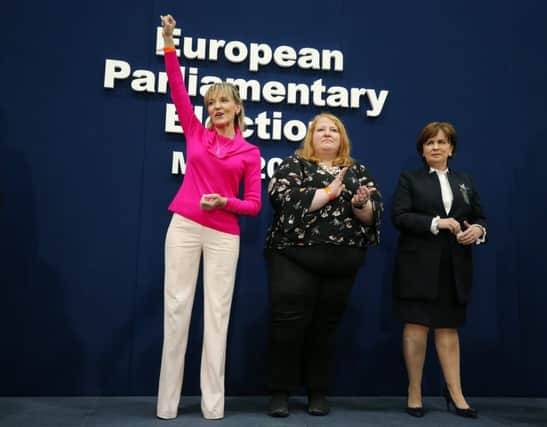Conservative and Labour out of step with voters


The UK is now completely polarised over Brexit. Add up the votes for the pro-remain and pro-leave parties and they reflect the divisions in the country, politically and geographically.
This sea change in politics also extends to the EU-27. While they are not in a position to have real influence so-called populist parties, often right wing and anti EU, will be a bigger voice in the new parliament. With around 200 seats out of 750 they do not have the numbers to secure real power, but their influence will be felt over issues such as immigration, EU expansion and federalism. The concept of ever deeper EU integration will struggle to survive this change. Ironically that could leave the EU an institution the UK could have stayed in, had these changes been achieved before the 2016 referendum.
Advertisement
Advertisement
We now face months of blood letting over the leadership of the Conservative party. This internal battle for its heart and soul would not matter as much if this was not also a battle to be the prime minister to guide a Brexit conclusion. There is no question that the European elections delivered both the government and the Labour party bloody noses and a reminder that they are out of step with voters.
The position of the Tories is even more bleak, but for both parties the message is the same. If they do not show more imagination over Brexit, be that to threaten no deal or back a new referendum, they are not going to get their traditional voters back into their fold. It is possible we are watching the end of the traditional two party system in the UK. If Labour and the Conservative parties do not want a future based around coalition governments they need to find a way to reconnect with voters.
History, not least in Northern Ireland, has shown that tough people are better at making deals that demand a step back from entrenched positions. Hard Brexit advocates may be better placed to deliver a Brexit outcome that may not differ much from the withdrawal agreement that foundered on the rocks of Tory party divisions. They may be better equipped to compromise in key areas. One certainty is that no matter who wins the Tory leadership fight the EU is not going to re-open negotiations. It may clarify the so-called political declaration if it will get a deal over the line, but not the core document. It has already factored in the consequences of the UK leaving without a deal.
Tory Brexiteers, including some seeking the top job, are saying that come October 31 we will leave the EU, with or without a deal. This certainly moves the no deal option up the agenda, influenced by the success of Nigel Farage’s Brexit party. To say this would be disastrous for agriculture is not about backing remain over leave. This has nothing to do with the politics of that decision. It is about hard economic logic and the clear message on the potential consequences from every farming lobby organisations and indeed those representing food, inputs and the wider economy. To accept otherwise would be expecting political hope to triumph over clear expectations. In any event this is not what farmers were promised in 2016 when many backed leaving the EU to escape the red tape of the CAP.
Advertisement
Advertisement
Trading on World Trade Organisation terms would close the UK out of many traditional food export markets. The classic economic theory argument would be that since the UK imports more food from the EU-27 than it exports, a market opportunity for UK farmers would be created. However that might not happen. The response time would be too slow, so any government at Westminster would respond by eliminating tariffs on food imports to keep down or reduce prices. This would see farmers lose export markets and have their home market undermined by imports.
To have the EU-27 with its massive agriculture industry as a competitor to the UK is a daunting prospect. We have to hope this will be avoided. Sound advice is to stick to that hope, ignore all that is said by Tory leadership hopefuls and trust that wiser heads will prevail by the autumn. As to the odds, a deal or a general election remain more likely prospects than a cliff edge jump into the economic unknown.